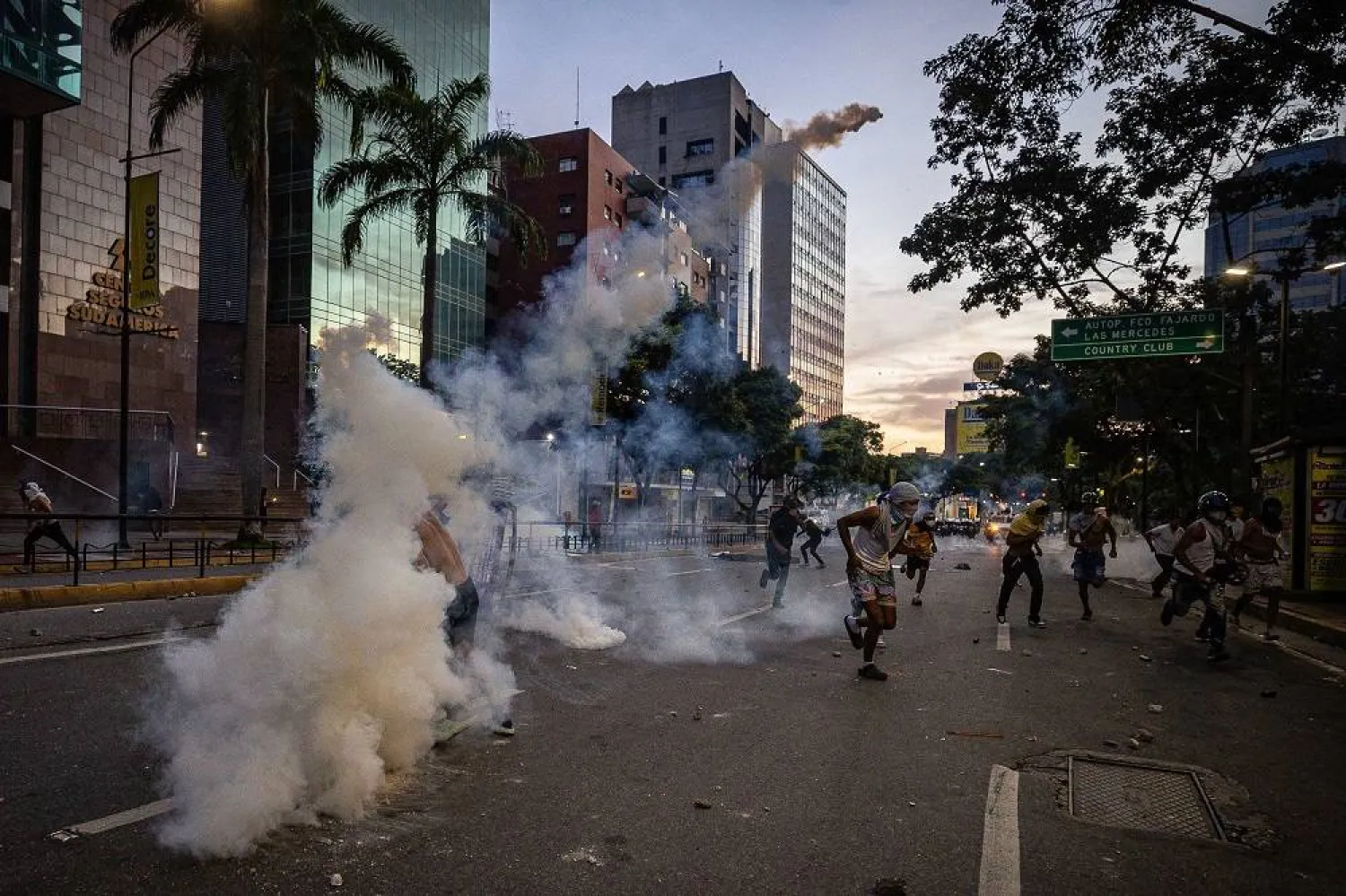Opponents and supporters of Venezuela's President Nicolas Maduro planned to rally on Tuesday as protests and clashes spread after a weekend election was awarded to the long-ruling socialist despite opposition claims of a landslide victory.
The renewed instability brought divided international reaction: the United States said Maduro's reelection had no credibility and was mulling more sanctions, while China and Russia congratulated him.
Protests began after the election board declared on Monday that Maduro had won a third term with 51% of votes to extend his "Chavista" movement's quarter-century rule.
The opposition, which considers the election body in the pockets of a dictatorial government, said the 73% of vote tallies to which it has access showed its candidate Edmundo Gonzalez had more than twice as many votes as Maduro.
Venezuela opposition party Voluntad Popular said on Tuesday on X that its national coordinator Freddy Superlano had been detained.
The party posted and then deleted a video showing Superlano and two others being stopped outside a gated building and hustled into a car by armed men clad in black as neighbors screamed for them to stop.
The video was also posted by local media.
The attorney general Tarek Saab did not immediately respond to a request for comment about whether Superlano was detained and on what charges.
At least six people have been killed around the country in incidents related to the election count or associated protests, according to rights group Foro Penal.
Some protesters blocked roads, lit fires and threw petrol bombs at police, including near the Miraflores presidential palace in Caracas.
"We are tired of this government, we want a change. We want to be free in Venezuela. We want our families to return here," said one masked protester, referring to the exodus of about a third of Venezuelans in recent years.
"I'll fight for my country's democracy. They stole the election from us," said another.
Police with shields and batons in Caracas and the city of Maracay fired tear gas to disperse some protests.
Many demonstrators rode motorbikes and jammed streets or draped themselves in the Venezuelan flag. Some covered their faces with scarves as protection against tear gas.
The government calls them violent agitators.
"We've seen this movie before," said Maduro from the presidential palace, pledging that security forces would keep the peace. "We have been following all of the acts of violence promoted by the extreme right."
The armed forces have long supported him and there were no signs generals were breaking from the government.
Defense Minister General Vladimir Padrino described the protests as a "coup."
"There is a coup in progress so President Nicolas Maduro has stepped up to stop it again and with him the people who elected him president, all the institutions, the Bolivarian armed forces and the democratic institutions," Padrino said on state television on Tuesday. "We will defeat the coup."
In Coro, capital of Falcon state, protesters cheered and danced when they tore down a statue depicting former President Hugo Chavez, Maduro's mentor who ruled from 1999-2013.
A local monitoring group, the Venezuelan Conflict Observatory, said it had registered 187 protests in 20 states by 6 p.m. on Monday with "numerous acts of repression and violence" carried out by paramilitary groups and security forces.
Saab said on state TV there had been 749 arrests and two deaths of security force members in Aragua state.
INTERNATIONAL DIVISION
Maduro, a 61-year-old former union leader and foreign minister, won election after Chavez's death in 2013 and was re-elected in 2018. The opposition said both votes were rigged.
He has presided over an economic collapse, mass migration, and deteriorating relations with the West, including US and EU sanctions that have crippled an already struggling oil industry.
Independent pollsters called Maduro's victory implausible, while governments in Washington and around Latin America questioned the results and urged a full tabulation of votes.
"Not even (Maduro) believes the electoral scam he is celebrating," said Argentina's President Javier Milei.
Peru ordered Venezuelan diplomats to leave within 72 hours, citing "serious and arbitrary decisions made today by the Venezuelan regime."
But in a familiar global division, allies including Russia, China and some leftist-led Latin American nations backed Maduro.
"China will, as always, firmly support Venezuela's efforts to safeguard national sovereignty, national dignity and social stability, and firmly support Venezuela's just cause of opposing external interference," President Xi Jinping said in a message.
Venezuelan opposition leader Maria Corina Machado, who was barred from running in the poll but has spearheaded the campaign for Gonzalez, called for marches on Tuesday.
"My dear Venezuelans, tomorrow we meet; as a family, organized, demonstrating the determination we have to make every vote count and defend the truth," she said.
The government is also planning pro-Maduro rallies. Many Venezuelans fear another bout of violence and bloodshed similar to others in its turbulent recent history.









